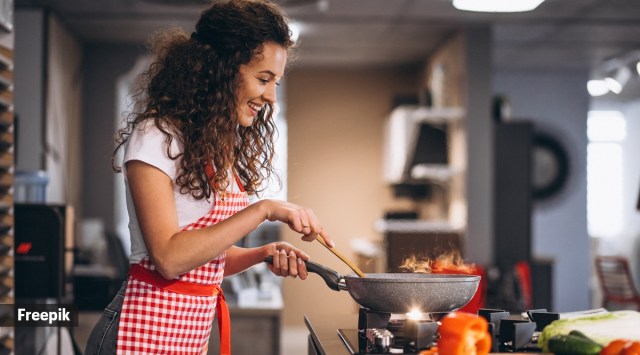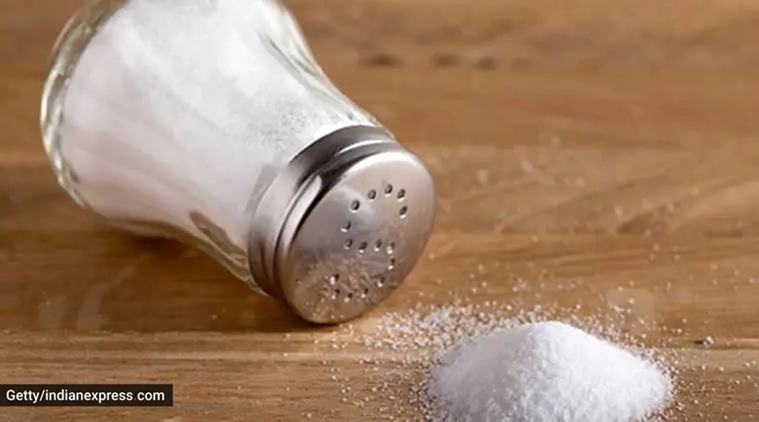- India
- International
Avoid these 5 cooking mistakes to ensure utmost nutrition
Taking care of these things in your cooking routine can make a big difference and help retain the nutrition in your meal.
 Use these kitchen hacks to make sure you get the maximum nutrition from your food.
(Photo: Freepik)
Use these kitchen hacks to make sure you get the maximum nutrition from your food.
(Photo: Freepik) You may be putting in every effort to make sure your food is clean and healthy, but even the slightest mistakes or oversights in cooking can result in a loss of nutrients in the food. As such, how you cook, for how long you cook, the cookware you use, and the ingredients you use all play a major role in how the final product turns out to be. So, if you wish to avoid making these extremely common mistakes, here’s dietitian Garima Goyal’s list of 5 common mistakes that you should not make in the kitchen:
*ADDING GARLIC DIRECTLY TO THE FLAME
Garlic has several health benefits including helping with the prevention of cardiovascular diseases and diabetes. Garlic is also a rich source of antioxidants. You may not obtain all these benefits if you add garlic directly to the flame. The compound responsible for most of these benefits is allicin, which gets activated only when you crush the garlic. However, crushed or chopped garlic should not be immediately added to your pan since allicin and other vitamins present in garlic are heat sensitive. Crush the garlic and let that rest for 10 minutes and then add it to your cooking.
*DEEP FRYING YOUR VEGGIES
Vegetables are great sources of essential vitamins, minerals, and fiber. It is important to have at least one serving of vegetables for every meal. Deep frying vegetables increases fat, and also most of the heat-sensitive vitamins and minerals may be lost. The best way to cook vegetables is either by sautéing or boiling them. While boiling, do not add excess water. Steaming is another great way to cook vegetables.
 WHO recommends a salt intake of less than 5 grams (approximately 2g sodium) per person per day. (Photo: Getty Images/Thinkstock)
WHO recommends a salt intake of less than 5 grams (approximately 2g sodium) per person per day. (Photo: Getty Images/Thinkstock)
*REHEATING OIL
If you have leftover oil after frying your papads or pakodas, let the oil go. Reheating your oil over and over increases the trans fat in it. Trans fats further raise the bad cholesterol levels in your body, and pose various health risks.

*NOT CHOOSING THE RIGHT COOKWARE
It’s not just about how you cook, but your cookware itself matters too. Iron cookware is considered to be much more beneficial and non-toxic than other cookware. Keep an eye on your non-stick cookware and assess its condition periodically. Over time, the teflon coating may wear off and mix with your food. It is advisable to change your cookware when you notice anything of this sort.
ADDING SALT LIBERALLY TO YOUR FOOD
Surveys have shown that the consumption of salt by Indians is higher than the recommended levels by World Health Organization (WHO). WHO recommends a salt intake of less than 5 grams (approximately 2g sodium) per person per day. An increased salt intake can have adverse effects and could cause water retention. During cooking, it’s important to track the grams of salt you are adding instead of sprinkling salt randomly. You can also be mindful and add salts to either just your side dish or main dish. This way you can reduce your salt consumption.
Taking care of these things in your cooking routine can make a big difference and help retain the nutrition in your meal.
📣 For more lifestyle news, follow us on Instagram | Twitter | Facebook and don’t miss out on the latest updates!
May 16: Latest News
- 01
- 02
- 03
- 04
- 05

























